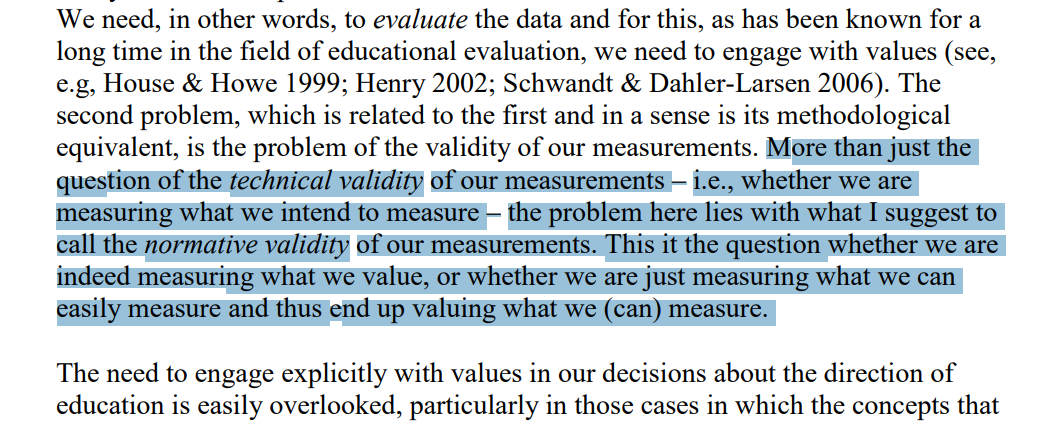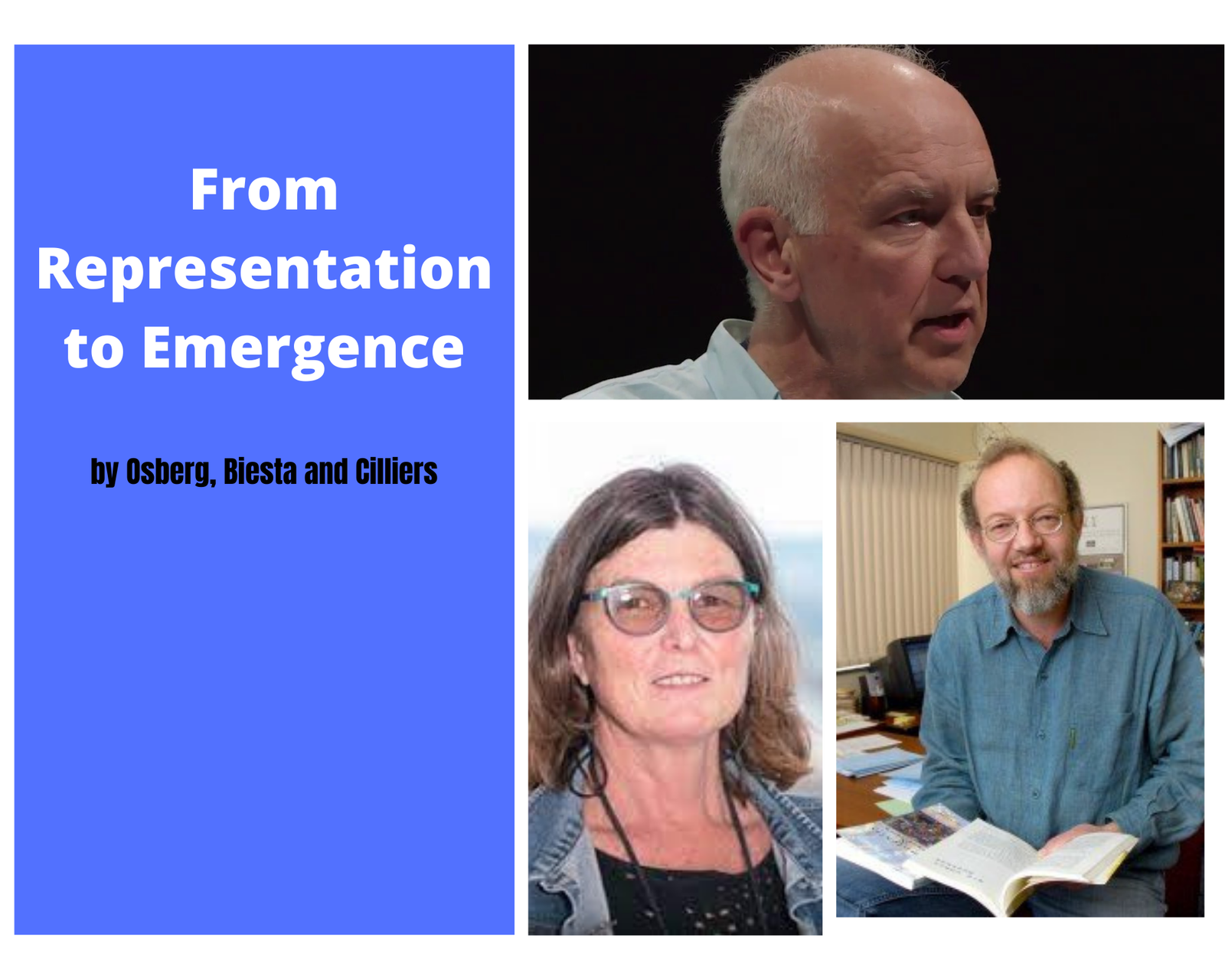Recently I have got the opportunity to watch an interview of Guy Claxton in which he was asserting the need to ask deep questions about evidence. The first question according to him should be “evidence of what?”. This made me curious to read an article that I have scanned through few years ago by Gert Biesta, i.e. “Good Education in an Age of Measurement”
In which he writes;
“More than just the question of the technical validity of our measurements – i.e., whether we are measuring what we intend to measure – the problem here lies with what I suggest to call the normative validity of our measurements. This it the question whether we are indeed measuring what we value, or whether we are just measuring what we can easily measure and thus end up valuing what we (can) measure.”

He further clarifies the difference between instrumental value, a value which says something about the quality of processes and, more specifically, about their ability to bring about certain outcomes in a secure way.
According to Biesta, whether the outcomes themselves are desirable is an entirely different matter, ie “a matter for which we need value-based judgements that are not informed by instrumental values but by what we might best call ultimate values“
He further expands the ideas discussing “The ‘Learnification’ of Education”. The article is freely available here(link)
I think education needs more scholars trained in philosophy to question many of its popular assumptions more often and more vigorously
